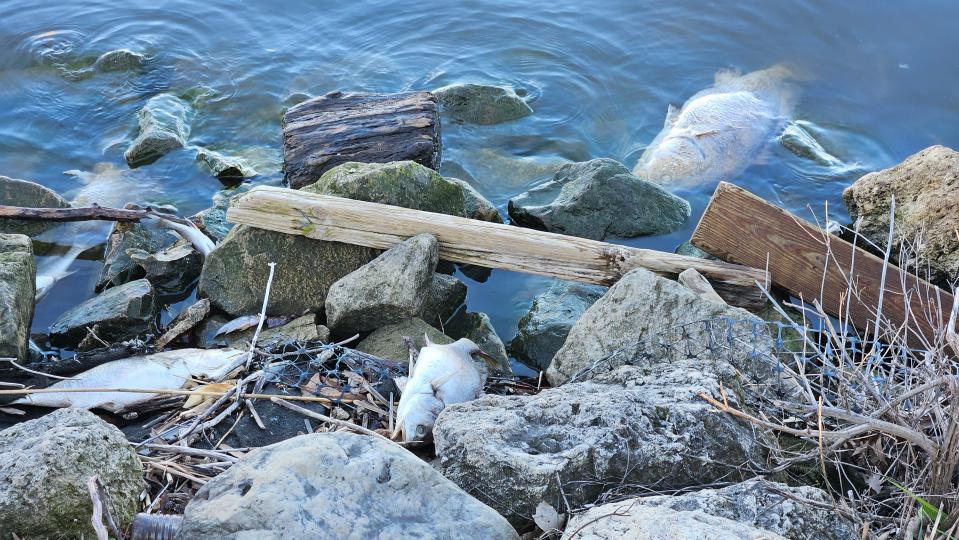In wake of Lake Macatawa fish kill, remember 'clean, drain and dry'
HOLLAND — Those who visited Kollen Park in the weeks leading up to Tulip Time may have noticed some dead fish present on the shoreline.
While a winter die-off of fish is an expected, natural and seasonal phenomenon in our waterways, the Michigan Department of Natural Resources tested and confirmed this specific accumulation of fish was due to a viral infection, viral hemorrhagic septicemia.

This infection has the potential to cause large-scale fish kills, but isn't expected to impact our local fish populations any further. VHS can't survive human body temperatures, so it doesn't pose a threat to humans or pets that come into contact with, or ingest, potentially infected fish or water.
More: DNR: Dead fish in Lake Mac caused by virus, no risk to humans or pets
The virus has been reported in Lake Michigan before, but is typically seen on the east side of the state in the Lake St. Clair/Lake Erie/Detroit River area.
To prevent further spread of this virus or other threats locally, those participating in water-related or water-adjacent activities should thoroughly clean all gear that makes contact with water.

Boaters and anglers moving between bodies of water are encouraged to follow the “Clean, Drain, Dry” method that's proven effective in limiting the spread of aquatic pests:
Clean: While still near the water, remove visible aquatic plants, animals and mud, returning them to their ecosystem. Rinse interior compartments and motors with hot water, in addition to disinfecting it off-site, according to equipment manuals. This includes boats, trailers and equipment like lifejackets, ropes, anchors, tubes, fishing gear and so on.
Drain: Drain all bilges and live wells before leaving a body of water.
Dry: Allow cleaned surfaces to dry for at least five days, or wipe down with a towel.
Disposal is sometimes included for those bringing organisms into the environment, such as pieces of fish or worms for fishing bait. Ensuring these non-native organisms are disposed of appropriately is important in preserving our ecosystems.
In addition to limiting the spread of VHS, these practices help protect our water from invasive plants and animals that would otherwise disrupt ecosystems within Lake Mac, resulting in extensive economic and natural resource damage.
Subscribe: Receive unlimited digital access to your local news coverage
It’s helpful to learn what common invasive organisms look like ahead of time. The Michigan Department of Environment, Great Lakes, and Energy and the Michigan Department of Agriculture and Rural Development together operate the Aquatic Invasive Species Monitoring Initiative and provide identification guides to learn about our most relevant species.
In Holland, the DNR was alerted to the accumulation of fish through an online reporting app called "Eyes in the Field." Similarly, we can help keep the state informed about relevant aquatic threats. Report any new invasive aquatic species on the watch list by calling 517-342-4087 or contacting eagle-wrd-aip@mi.go.
You can also report known species through the Midwest Invasive Species Information Network online reporting tool or app.
— Sarah Washabaugh is a conservation educator for the ODC Network.
About This Series:MiSustainable Holland is a collection of community voices sharing updates about local sustainability initiatives.This Week’s Sustainability Framework Theme: Community Knowledge: The collective knowledge and energy of the community is an incredible resource that must be channeled to where it's needed.
This article originally appeared on The Holland Sentinel: In wake of Lake Macatawa fish kill, remember 'clean, drain and dry'

